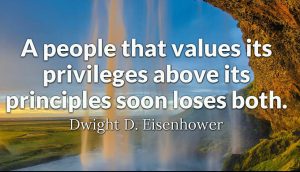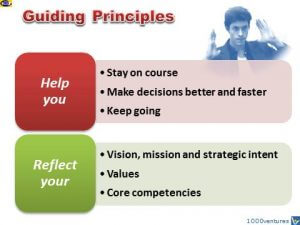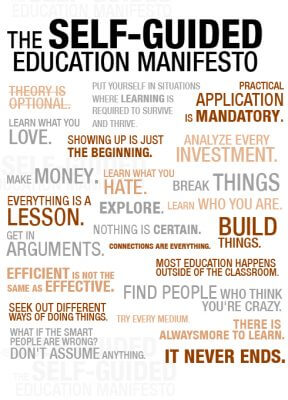 I just watched two book reviews of the same book, Happiness Hypothesis by Jonathan Haidt. ((Book truth value: 7%. Why so low? There are many reasons, but for one: he says: good ideas. Cowardly? Yes. Low vibration? Wanting to sell more books? Yes. Sellout? yes.)) Why? Because I wanted to get the gist of it, without having to chew 300 pages plus.
I just watched two book reviews of the same book, Happiness Hypothesis by Jonathan Haidt. ((Book truth value: 7%. Why so low? There are many reasons, but for one: he says: good ideas. Cowardly? Yes. Low vibration? Wanting to sell more books? Yes. Sellout? yes.)) Why? Because I wanted to get the gist of it, without having to chew 300 pages plus.But I am still interested to hear the principles, in 10 minutes instead of 10 hours... wouldn"t you?
The two reviews differed vastly, because of the reviewers.
Their IQ being the same, I looked at their vibration, and the difference was there... 20 points difference.
Vibration, in one way to look at, is the height from where you look at life.
The first guy looked at the book from a height from where you can see the principles, and can allow yourself to be guided by them. That is the usefulness of principles.
https://www.youtube.com/watch?v=rnwGZ_xv8nc
The second guy looked at the book from the practical straight "give me what to do and then I am done" view... and got mighty little out of the book, and none of the principles. ((There is a third guy"s video I watched for a minute or so...
https://www.youtube.com/watch?v=kIWqkeUxRNA
He follows someone else"s notes, so I didn"t want to measure him... But you can watch HIS video if you want. He brings up different principles... so you get more of the book.))
https://www.youtube.com/watch?v=VJJ2X-TPbuQ
Another major difference between the two guys is humility.
Humility is not how high you think yourself, it is more how much you think of yourself. I have paraphrased the quote... In another word: how much of what you hear, read, or see you do to benefit yourself, to get, to take, to fix, or to be offended about. You really only hear what you can see as useful for yourself.
I measure to what degree you think things are about you. The first guy has a 30% score, the second has a 94% score.
Now... I don"t measure this in the Starting Point Measurements ((

)), but curiosity is inversely correlated with your "about you" score.
Curiosity is the ability to remain interested beyond what"s in it for you.
Is this an accepted way to define curiosity? No, but it is what it is. The dictionary says: a strong desire to know or learn something. But the dictionary will never go and look under the hood and see what is driving it...
But if you approach it as the inverted measure of "what"s in it for you", you can see that the "what"s in it for you" can be satisfied fast, or it"s not even visible for the incurious person... so they won"t want to know.
I say 99% of my readers are incurious. Maybe the number is 98%.
How do I know? They read a little bit and they leave. Even the ones that ask for their Starting Point Measurements: they have a narrow agenda: either to get their inflated self-esteem approved, or to find out where they are compared to others.
And then the 1% will be interested in raising their vibration, but not enough to actually purchase my guidance.
One of the most detrimental invisible the Starting Point Measurements show is to what degree you filter things through yourself.
Why is being all about yourself detrimental?
- 1. For one: you cannot see the forest for the trees, you cannot get distinctions or principles to guide you, because you cannot even look at them, because you would have to take your eyes off yourself.
- 2. But even more important: you cannot be happy.
To be happy you need to have a context for your life, a meaning, that is larger than yourself. It can include yourself, but it goes beyond yourself.
When your "about you" part is too big, you cannot do it.
- 3. And third: You cannot learn anything, because you already know everything you want to know. Not skills, not anything.
- 4. You have no center, you have no self. You have no sense of control... things happen to you, good and bad, and your mood will change accordingly. You are busy with sand and maybe even pebbles in your life, but no matter how hard you try, you cannot see any rock that is important to you enough to organize your life around.
This is the reason I make the 67 steps coaching participants start every post about every step stating what is the principle, or if there are more, what are the principles.
 What is a principle? Dictionary says: a fundamental truth or proposition that serves as the foundation for a system of belief or behavior or for a chain of reasoning.
What is a principle? Dictionary says: a fundamental truth or proposition that serves as the foundation for a system of belief or behavior or for a chain of reasoning.
But surprisingly, if you don"t live your life by principles, they your happiness level, your level of accomplishment will be low.
It isn"t said in the Integrity Statement, but your integrity will suffer... You are going to walk east, west, south... but not true north. And you will not like yourself.
 Principles are the rocks, as opposed to pebbles and sand.
Principles are the rocks, as opposed to pebbles and sand.
You consider memes principles, but they are not. Memes are cultural truisms, cultural guidance, to make you sheep, to make you enrich others, to give up your individuality.
Principles, on the other hand, are time tested, across different cultures, and they strengthen and honor your individuality.
Here is a principle most people know, even if they don"t know what it means. Their incuriosity (lack of curiosity) never allowed them to go deep into the principle.
Begin with the end in mind.
When you start an action with an end in mind, your innate guidance will be activated, and you"ll know if you are moving towards or away from that end. I don"t call it goal... I call it the horizon. It is not specific and not measurable, like a goal. It"s a direction.
Here is an example: become all you can become... you can see that the more you move towards that the farther it seems to move... which is the nature of the horizon.
But as long as you move towards it, your integrity is intact... When you make a wrong step, you can self-correct, because you can simply return to moving towards that horizon.
- For example: living a life you love and you live it powerfully... Of course it"s not a simplistic horizon... and Landmark Education has four courses to teach the distinctions it will take to see and obey to get there.
- But you can break it down to components. For example one of the horizons I suggested to a student of mine, after a long conversation delineate what he doesn"t want is this: Making a life and a living doing only what he says he would do. Like me...
Of course that was my good idea, and eventually he will come up with his own horizon...
- Or another of my students who set out towards the horizon: "I choose my self to be a free, independent and productive human being; an idea machine"
Without a horizon operational in your life, your integrity will be low.
100% of all the people I have ever measured have an integrity score of less than 10%. They may cry bloody murder, but without a horizon, there is no integrity. Only drifting.
No comments:
Post a Comment